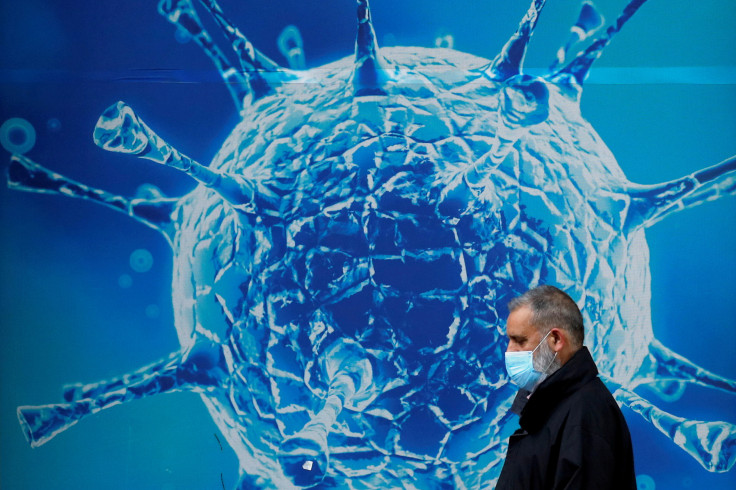UK and US Announce Partnership to Tackle Biological Threats For Future Pandemics
A new biological threat-tackling partnership has been formed between the UK and the US building on the Atlantic Declaration signed last year to strengthen biosecurity surveillance like disease outbreaks.

As biological threats like the COVID-19 pandemic and disease outbreaks become a major problem across the world, the UK and the US are trying to develop new ways to tackle it for better biological security.
On January 16, the UK Cabinet Office announced that Britain and America are embarking on a new strategic partnership to counter biological threats and protect their biological security.
The new strategic dialogue on biological security with the United States will protect Britain and UK citizens from biological threats, said the UK government.
The Sunak government launched the new biological threats tackling partnership based on existing commitments with the US including the Atlantic Declaration signed by the two countries in June last year. The Declaration provided the necessary framework for the development of future economic partnerships needed to tackle 21st-century challenges like this partnership on biological threats.
The new partnership will help strengthen the future of the UK economy by making it more resilient.
Through the Strategic Dialogue on Biological Security, the two countries are confirming that they will work as equal partners to fulfil their commitment to stepping up biosecurity collaboration.
The strategic partnership on biological threats is governed by the UK Biological Security Strategy and the U.S. Biodefense Strategy as it seeks to protect against a diverse spectrum of common biological threats of both countries like antimicrobial resistance, future pandemics, deliberate bio attacks and the misuse of biotechnology.
This comes at a time when UK health officials warned of a surge in long COVID hospital cases amongst UK children, three years after the pandemic first emerged.
The UK and the US will be working on a range of areas to strengthen biosecurity and counter biological threats including a "one health" approach of biosurveillance for detecting disease outbreaks and developing faster responses to them by using modern technology.
The two countries will work on developing new tools and methodologies to better understand the forensics and attribution of disease-causing microbes like the coronavirus and bacteria. However, this will not come at the cost of haphazard irregular innovation as the UK and US have set the agenda for responsible innovation in the biotech, health and life science sectors to enhance biosafety and biosecurity standards.
The ultimate agenda of the strategic partnership is to strengthen collaboration on biological threats and help facilitate next-generation vaccines and therapeutics that can restrict future pandemics.
UK-US biological threats tackling to speed up NHS diagnosis and treatment?
The new biological threats tackling partnership jointly announced by the UK Cabinet Office and the White House National Security Council is building on Britain's position as a global leader in biological security as it assures of working with like-minded partners to create a global consensus on building resilience to deter biological threats through collaborations.
The UK Deputy Prime Minister Oliver Dowden further announced a £2 million funding through the Guy's and St Thomas' Respiratory Metagenomics Project for the genetic sequencing of disease-causing pathogens like viruses and bacteria. This grant will be used to enhance patient outcomes as well, as it provides essential data for the surveillance of emerging diseases.
Metagenomics is a way of studying and sequencing the entire microbes concerning a particular area or subject as opposed to single DNA or gene sequencing. This gives a clear idea of the presence of microbes like viruses and bacteria along with their nature, thus helping in predicting future disease outbreaks. Respiratory metagenomics means studying microbes that cause respiratory infections like influenza, flu or coronavirus.
Speaking about the new biological threats tackling partnership, Deputy Prime Minister Oliver Dowden said he was pleased to announce the "strategic partnership" as it reflects the two countries' "shared ambitions to build resilience in the face of increased biosecurity threats".
Dowden said: "Schemes such as the Respiratory Metagenomics Project are key to increasing our biosecurity, with the work done at Guy's and St Thomas' serving the dual purpose of improved NHS diagnosis and informing systems to monitor infectious diseases which threaten the health and economic security of our nation."
This comes at a crucial juncture in the UK healthcare system history as the country is going through an NHS staffing crisis amidst strikes for better pay.
The Chief Executive of Guy's and St Thomas, Professor Ian Abbs revealed how metagenomic testing can " identify and treat infections faster than ever before" as seen in previous research work.
"Our ambition for diagnosing within hours rather than days is becoming a reality," said Professor Abbs.
"The benefits of this investment in the metagenomics service will in time reach beyond our wards to provide this capability at hospitals across England, identifying emerging pathogens at a national scale," Professor Abbs assured.
The UK Science Secretary Michelle Donelan said that the government is " embracing innovation and cutting-edge science and technology to boost public services and improve people's lives".
"We are scaling up the Respiratory Metagenomics pilot so patients can receive swifter and more precise diagnoses", Donelan said.
The Science Secretary further explained how "expanding the programme will bring the transformative power of rapid genetic sequencing technology and expertise of scientists to the forefront of our NHS".
© Copyright IBTimes 2025. All rights reserved.






















